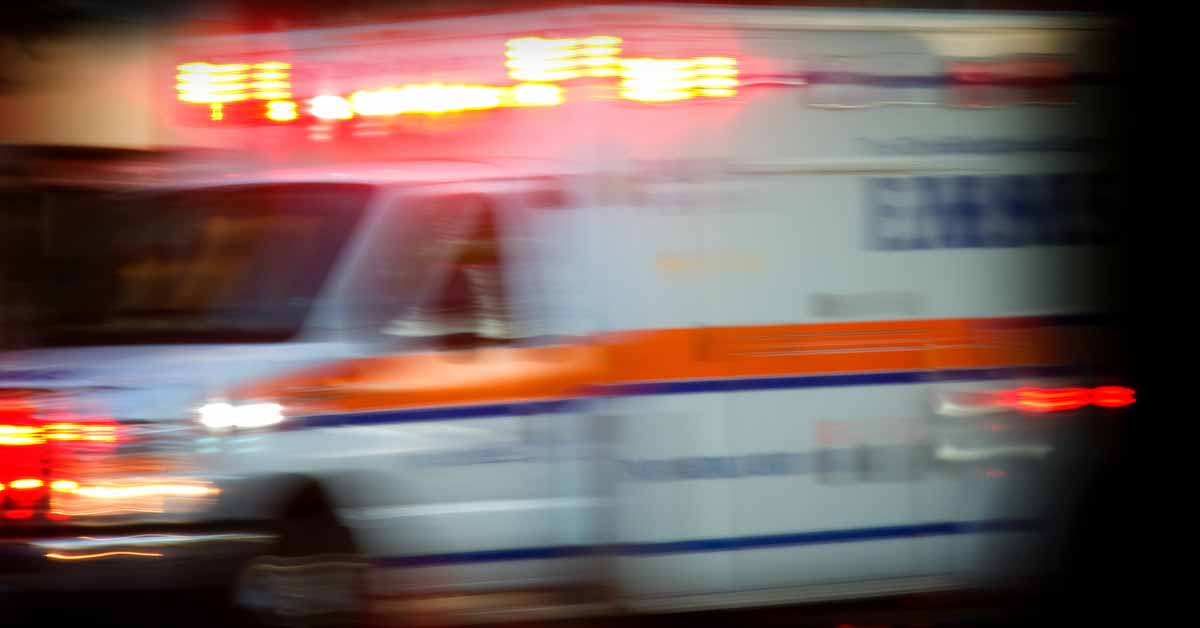One of the more frustrating aspects of coping with a food allergy is the inability for others to grasp the full gravity of what it’s like to live with a life-threatening disease that can be triggered any place, any time.
Allergen restrictions are often discounted as fad diets and reactions are often seen as mere inconveniences that are easily resolved with an antihistamine or a jab with an auto-injector.
Nothing can be further from the truth.

We came across an article by Kevin Moore published in the Northern Kentucky Tribune in which Mr Moore describes surviving three separate instances of anaphylaxis while on the job.
His account is absolutely harrowing and should be shared with food allergy deniers and disbelievers everywhere as a teaching opportunity:
To be exact, I have had one near-death experience and two very close near-death experiences from an allergic reaction to peanuts that resulted in anaphylactic shock from accidentally ingesting something that was not supposed to have nuts in it. This is one of the scariest experiences you could ever go through. I equate it to having an elephant parked on your chest, or running a mile as fast as you can and then being given a coffee stirrer to breathe through while you pinch your nose for the next 10 minutes.
The initial reaction from an allergic reaction is disbelief as you suddenly experience an abrupt sensation that something just isn’t right. Then within seconds, you feel your heart rate jump from 75 to 180 beats per minute as your body begins to go into self-defense mode to fight off the allergens that have invaded it. As all your senses begin to magnify, you realize that within minutes you will be dead if you don’t act quickly.
In each of my instances as I awaited medical attention, I was cognitive of everything around me but I just couldn’t breathe. As the allergic reaction begins to take its toll, you sweat profusely from every pore within your body, drenching your clothing as you lose the use of muscles in your neck, arms, and legs. Just holding your head up becomes strenuous. Your only focus at that very moment is that very next breath. Then it becomes that very next breath and so forth with that much more intensity each time.
While your limbs begin to turn to jello, you realize you are inhaling a little less oxygen with each struggling breath and you feel your lungs slowly closing off. As your body slowly succumbs to the allergic reaction, you pray that medical help arrives before you lose the ability to breathe.
Everything begins to feel cold and you feel alone even though the people around you are trying to do whatever they can. Then you begin to hear a distant siren from an ambulance growing closer and you realize there is hope.
In the one situation in downtown Alexandria, VA just outside one of our insured’s offices, one of the most comical yet horrifying situations occurred. As the fire truck arrived, it accidentally crashed into a parked vehicle just a few feet away from where I was trying to stand. As the rest of the firefighters hopped out to give the driver a hard time, a co-worker I was traveling with, Carol Anderson from Fireman’s Fund Insurance Company a take-charge kind of person, snapped at them and one finally came to my aid as I pleaded for an EpiPen. He informed me they didn’t carry an EpiPen on their truck and to hang on as the ambulance was just a few blocks away. With my co-workers standing around helplessly, I blacked out.
Once arriving at the hospital it felt like an out-of-body experience as if I was thrust into an old NBC E.R. rerun, mixed in with a horrible remake of the movie Groundhog Day. There is nothing more helpless than the feeling of being unable to move with 10-12 medical personnel hovering over you, cutting off your shirt, sticking you everywhere and doctors barking out orders as they warm up the crash cart.
Luckily, I lived through each of these experiences and several less severe incidents over the years. I don’t take any day for granted my allergy to peanuts. Each day that I awake, I know that this could be my last, as I believe this is how I will leave this earth someday.
We are grateful Mr Moore survived his bouts of anaphylaxis and wish him good health (and better luck) in the years to come.
Our sincere thanks to him for publishing his account and to the Northern Kentucky Tribune for their permission to reprint his words here.
We remind you to always Take 2 epinephrine auto-injectors everywhere, every time and to use them as soon as you suspect anaphylaxis.
Epinephrine First, Period





